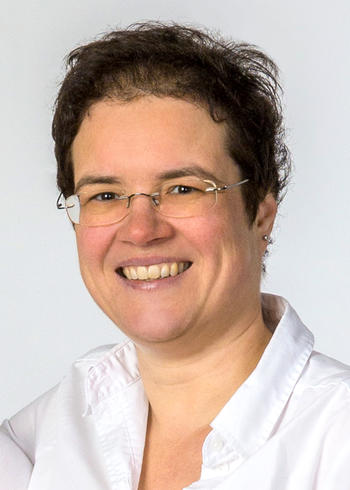Dr. Eva Rosenstock

Mai – Aug. 2018
14195 Berlin
Eva Rosenstock is a prehistoric archaeologist currently teaching at Freie Universität Berlin. A comparative perspective between the Near East and Europe has proven a useful approach for many topics in her research. Among these are Eva’s Ph.D. on tell sites, her excavations on the 6th millennium site of Çatalhöyük West in Central Anatolia and her PostDoc research on the biological standard of living in prehistory.
2011 – 2018
Leitung der Emmy-Noether-Nachwuchsgruppe "Lebensbedingungen und biologischer Lebensstandard in der Vorgeschichte", Institut für Prähistorische Archäologie der Freien Universität Berlin
2006 – 2011
Wissenschaftliche Mitarbeiterin, Institut für Prähistorische Archäologie der Freien Universität Berlin
2007- 2008
Reisestipendium des Deutschen Archäologischen Dienstes
2005 – 2006
Wissenschaftliche Hilfskraft, Lehrstuhl für Wirtschaftsgeschichte der Universität Tübingen
2005
Dr. phil. an der Fakultät für Kulturwissenschaften der Universität Tübingen
2001 – 2005
Promotionsstudiengang, Universität Tübingen sowie Univesity of Durham
1995 – 2000
Studium der Ur- und Frühgeschichte, Physischen Anthropologie und Vergleichenden Sprachwissenschaft sowie Agrarwissenschaft an der Martin-Luther-Universität Halle-Wittenberg, TU München und Eberhard-Karls-Universität Tübingen
Temporal rythms are inherent to all living beings. While a hunter-gatherer way of life requires only the knowledge of such processes, cultivation and domestication are often associated with the active modification and appropriation of these natural rythms for human benefit. Between unchanged, "wild" and related cycles on the one hand, and purely artificial cycles on the other hand, such „tamed“ rythms represent an intermediate stage within the spectrum of cyclical processes. Since these cycles are considered to be of universal validity, they can be used as analogies for interpreting fragmentary evidence of prehistoric processes. Based on published chrono-biological and cultural-anthropological data, a complex of research questions pertaining to this idea will be developed in the framework of the project "Wild times, tame times: the cultural appropriation of natural cycles in the Near East and Europe during the Holocene". Moreover, the project also aims to assess the range of natural and modified cycles, as well as to elucidate their significance by looking at exemplary Holocene economies.
Forschungsschwerpunkte
Prehistoric archaeology; settlement archaeology; economic archaeology; anthropological archaeology
2018
J. Hendy/A. Colonese/I. Franz/R. Fernandes/R. Fischer/D. Orton/A. Lucquin/L. Spindler/J. Anvari/E. Stroud/P. F. Biehl/C. Speller/N. Boivin/M. Mackie/R. R. Jersie-Christensen/J. V. Olsen/M. Collins/O. Craig/E. Rosenstock, Ancient proteins from ceramic vessels at Çatalhöyük West reveal the hidden cuisine of early farmers. Nature Communications 9, 2018, 4064. (https://doi.org/10.1038/s41467-018-06335-6)
2014
E. Rosenstock, "Zyklische Abläufe als Hilfsmittel zur Deutung von Zeit in der Archäologie", in: S. Reinhold/ K.P. Hofmann (Ed.), Zeichen der Zeit. Archäologische Perspektieven auf Zeiterfahrung, Zeitpraktiken und Zeitkonzepte (Themenheft), Forum Kritische Archäologie 3 (2014) 110-135.
2014
E. Rosenstock, "Like a su böregi: Settlements and site formation processes in Neolithic Turkey", in: M. Özdogan/ N. Basgelen/ P. Kuniholm (Ed.),The Neolithic Turkey: 10500-5200 BC: Enviroment Settlement, Flora, Fauna. Dating, Symbols of Belief, With views from North, South, East and West, Vol. 6 (Istanbul 2014) 223-263.
